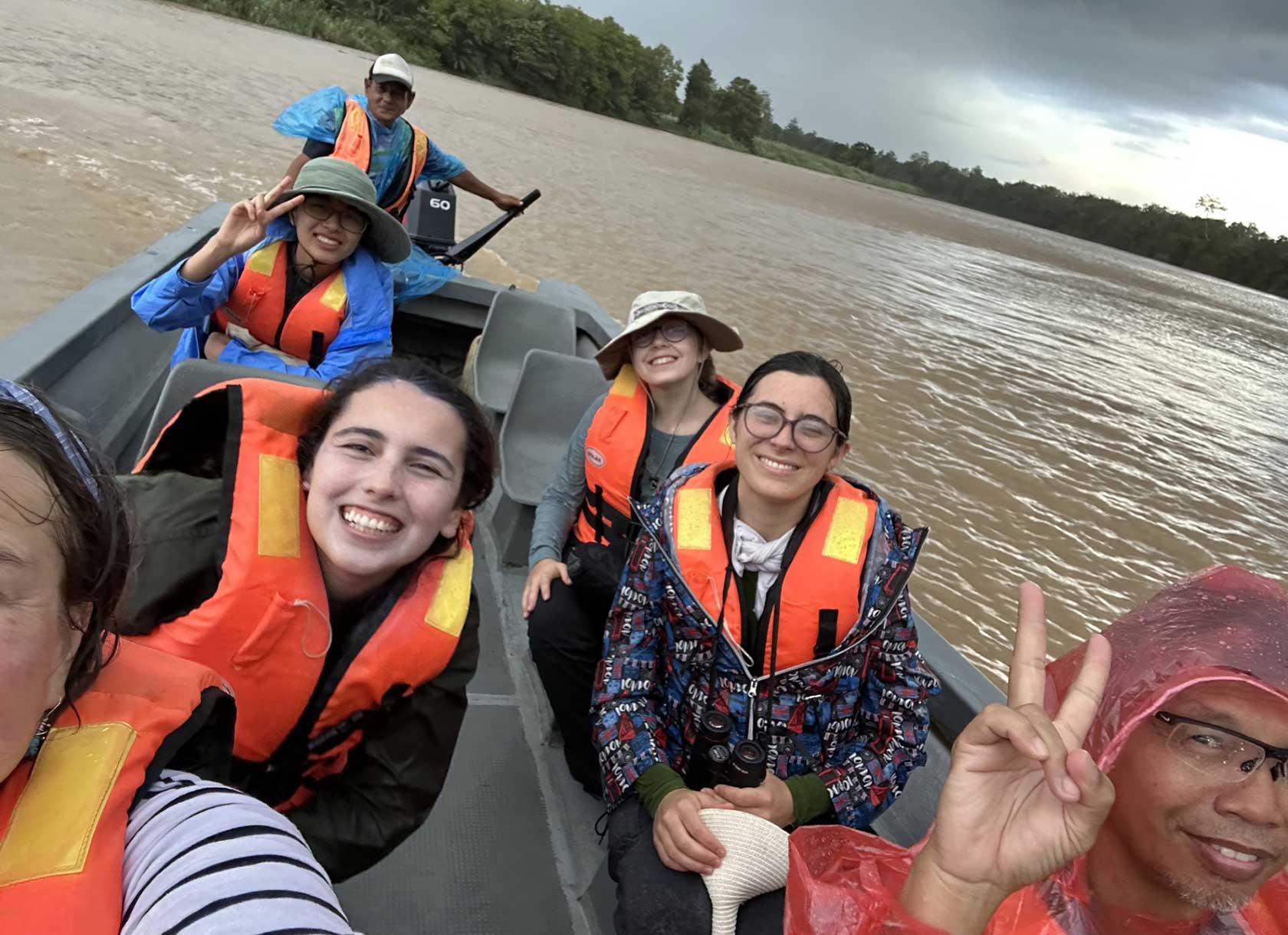By Mаdeleine Nаkаmura

This summer, Associate Professor of Music Anne Dorothy Harley accompanied four Scripps students on a research trip to Malaysia. The trip was part of a group project involving the creation of a performance focused on pollution and climate change in Sabah, the easternmost state of Malaysia, located in Borneo. In addition to traveling to Malaysia, the students worked with several Malaysian artists and educators who visited Scripps, including O’Brien Distinguished Visiting Professor, Fulbright Scholar, composer, and activist Yii Kah Hoe; dancer and Claremont Graduate University alum Young Tseng Wong; Claremont Graduate University’s Associate Director of Transdisciplinary Studies Shamini Dias; and Fulbright Scholar, Scripps alum, and Scripps IT staff member Christine Gao ’17.
The research trip was fully funded by a Freeman Student-Faculty Fellows Program grant of more than $24,000 from ASIANetwork, a professional organization of more than 140 member colleges that strives to promote the development of Asian studies within the liberal arts. The Freeman Student-Faculty Fellows Program supports faculty-led student summer projects in Asia that help students develop their professional skills under the mentorship of a faculty member while engaging with global issues in an Asian context. “There is tremendous value to Scripps’ participation in ASIANetwork,” Harley says; the significant grant enabled her students to take part in a unique, deeply enriching experience.
Harley and her cohort—Lizbeth Betances ’22, Jeanette Hunker ’23, Somerset Grant ’26, and Isabel Li ’25—traveled to Sabah, where they met with students and faculty at Universiti Malaysia Sabah, ecotourism professionals, and art activists. Over the course of their work in Malaysia, the students learned about Sabah’s challenges with migrancy, ecotourism, economic polarization, and access to public education by delving into multifaceted issues such as the precarious situation of undocumented migrant communities in Sabah. These challenges often intersect; for instance, the large amounts of plastic waste polluting coastal Sabah are partially produced by offshore migrant communities to whom the government does not provide public water or waste systems.
The research gave Harley’s cohort insight into unfamiliar perspectives and lived experiences. “They learned about how students and artists in Sabah perceive their own cultural identities and how those identities are lived out in ways they had not previously imagined,” Harley says. Somerset Grant ’26 adds, “Because our research relied on communication across linguistic, cultural, and political differences, I further developed an ability to listen empathetically.”
Grant will accompany Harley to the ASIANetwork national annual conference in Atlanta, Georgia in spring 2024 to present on the cohort’s research. “Presenting will develop my capacity for clear, compelling communication and provide me with a baseline understanding of what academic research can be,” Grant says. “I am considering pursuing higher education to go into academia, and I hope my experience at the conference will give me a more solid understanding of the responsibilities and scope of an academic career.”
Harley’s cohort distilled their experiences in Sabah into a performance project, working with Harley; Yii Kah Hoe; and Misty G. Anderson, a professor of English at the University of Tennessee. The collaboration resulted in a short theater piece including traditional Malaysian music, which was performed and filmed in Kuala Lumpur. The piece will be presented at Scripps on November 10, 2023, with copresentations by Sue Castagnetto, director of the Intercollegiate Feminist Center for Teaching, Research and Engagement; and Gretchen Maldonado, interim director of the Laspa Center.
Along with advancing their professional and academic skills in preparation for their postgraduate paths, the research trip allowed the students to develop meaningful bonds with others. “For me, the most rewarding aspect of the project was forming connections with the three other Scripps fellows, the students at Universiti Malaysia Sabah, and the children at the Caring for the Future Malaysia children’s home,” Grant says. “I feel like this trip has set the foundation for continued collaboration with these communities.”

